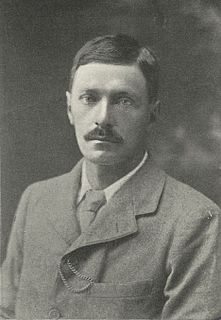A Quote by Michael Ondaatje
He has been disassembled by her. And if she has brought him to this, what has he brought her to?
Related Quotes
Mother is in herself a concrete denial of the idea of sexual pleasure since her sexuality has been placed at the service of reproductive function alone. She is the perpetually violated passive principle; her autonomy has been sufficiently eroded by the presence within her of the embryo she brought to term. Her unthinking ability to reproduce, which is her pride, is, since it is beyond choice, not a specific virtue of her own.
The vulnerability undid him even as the strength brought him pride. And the whole of her brought him love beyond the measuring of it. Of all he'd craved in his life, all he'd dreamed of having, all he'd fought to gain by fair means or foul, he'd never imagined having such such as she as his own. Never imagined himself the man he'd come to be because she was.
Slowly his resistance ebbed. She felt the change in his body, the relaxing of tension, his shoulders curving around her as if he could draw her into himself. Murmuring her name, he brought her hand to his face and nuzzled ardently into her palm, his lips brushing the warm circlet of her gold wedding band. “My love is upon you,” he whispered…and she knew then that she had won.
Neither loss of father, nor loss of mother, dear as she was to Mr Thornton, could have poisoned the remembrance of the weeks, the days, the hours, when a walk of two miles, every step of which was pleasant, as it brought him nearer and nearer to her, took him to her sweet presence - every step of which was rich, as each recurring moment that bore him away from her made him recal some fresh grace in her demeanour, or pleasant pungency in her character.
Even after the age of 50 it was impossible for me to see my mother as a human being. I felt she was a monster, and she had subtly been influencing my behavior and my thoughts and my dreams for so long that she was kind of a monster; she was a demon. And when I brought her back to life, I could feel that malevolent presence around me again, that woman who was totally incapable of giving nurturing to anybody, and, you know, her selfishness and her withdrawn indifference to everything but her own needs.
She had been sharing a house with him for a week, and he had not once flirted with her. He had worked with her, asked her opinion, slapped her on the knuckles figuratively speaking when she was on the wrong track, and acknowledged that she was right when she corrected him. Dammit, he had treated her like a human being.
Home they brought her warrior dead: She nor swooned, nor uttered cry: All her maidens, watching, said, 'She must weep or she will die.' Then they praised him, soft and low, Called him worthy to be loved, Truest friend and noblest foe; Yet she neither spoke nor moved. Stole a maiden from her place, Lightly to the warrior stepped, Took the face-cloth from the face; Yet she neither moved nor wept. Rose a nurse of ninety years, Set his child upon her knee- Like summer tempest came her tears- 'Sweet my child, I live for thee.' -Alfred Lord Tennyson





































